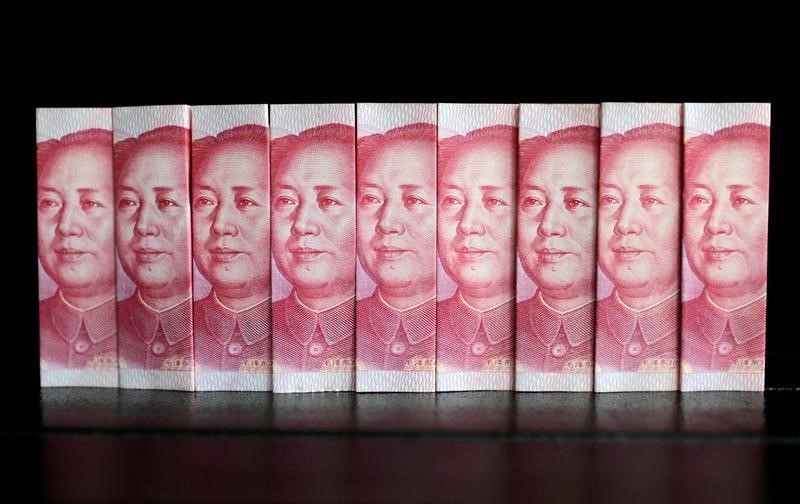SHANGHAI (Reuters) - China's weakening currency is a key concern for more than half of the country's wealthy elite, with 60 percent of them planning to buy property overseas in the next three years as a hedge against yuan depreciation, according to a rich list report.
The most popular destination for that investment was expected to be the United States, in particular the West Coast, followed by Britain, Canada, Australia and Singapore, a study from the Hurun Report released on Monday said.
China's yuan
"There's been a real focus on America, driven by the devaluation of the yuan against the dollar," Hurun founder Rupert Hoogewerf told Reuters.
"Last year people were speculating about a falling yuan but this year its been right there in front of their eyes."
The report, which surveyed around 300 wealthy Chinese between August and October, included questions on yuan depreciation for the first time after it had stood out as a key concern in focus groups ahead of the survey, he said.
According to the report, 56 percent of those surveyed said currency depreciation was a concern.
Hoogewerf added China's wealthy targeted having one third of their wealth overseas, either via property or foreign exchange deposits. He said the total wealth of China's "high net worth individuals" was over 60 trillion yuan (7 trillion pounds), of which only a small portion was currently held outside China.
In China, there were 1.34 million so-called high net worth individuals, defined as people with at least 10 million yuan, or about $1.5 million, the report said.
Beijing has been trying to stem the flow of capital abroad with a string of measures aimed at closing loopholes and clamping down on illegal transfers.
Hoogewerf added rising property prices in Chinese cities was also pushing people to look abroad. "Prices have been booming in China, which has been driving some people overseas," he said.
Overseas financial investment accounted for 15 percent of the wealth of the individuals surveyed by the report. People invested abroad to spread investment risk, give their children a better education and to facilitate emigration, it said.
